A history of student protest at Columbia University
Anti-Israel demonstrations at NYC's Ivy League university echo protests against Vietnam War and South African apartheid
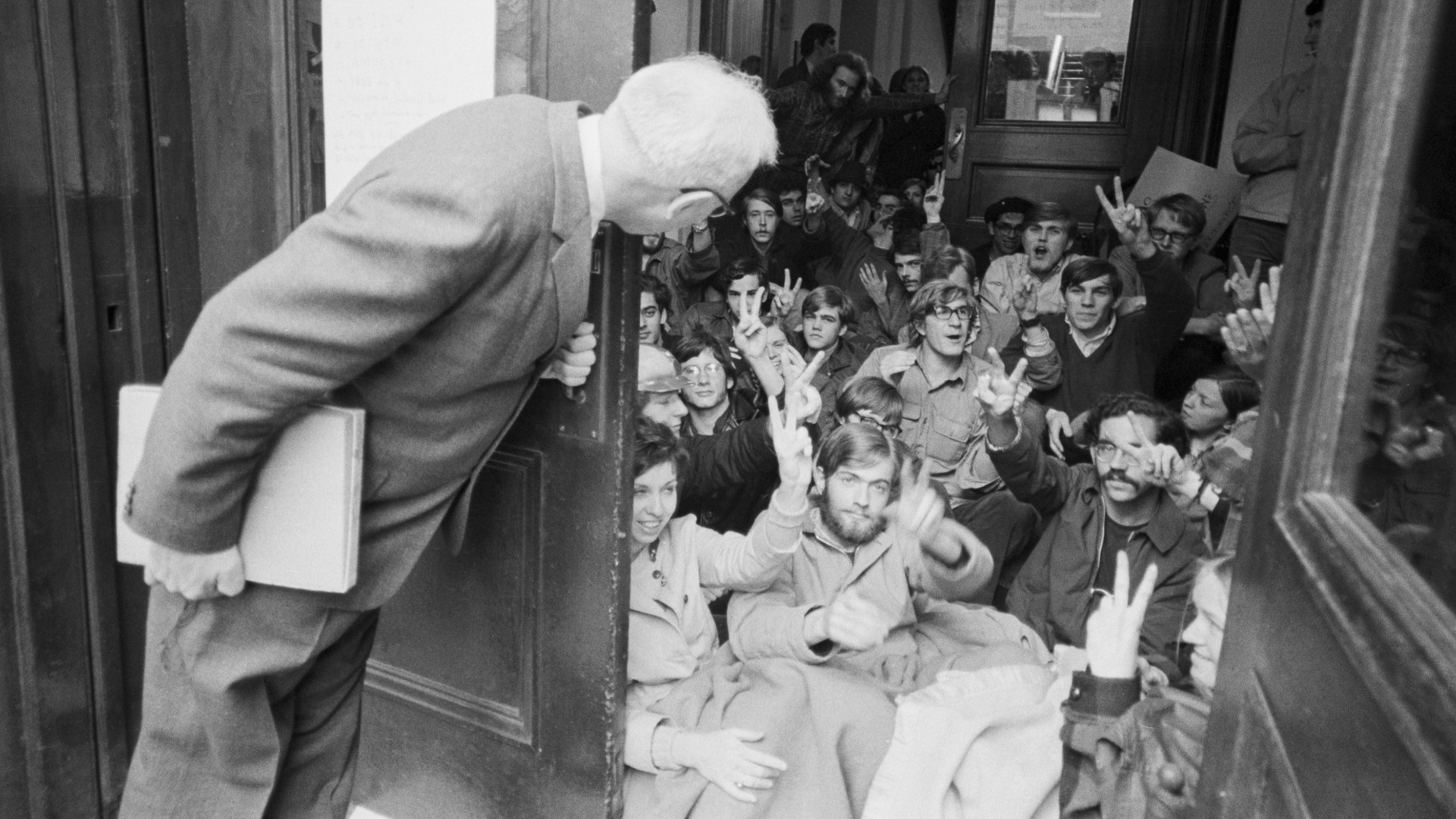
A free daily email with the biggest news stories of the day – and the best features from TheWeek.com
You are now subscribed
Your newsletter sign-up was successful
Police in riot gear raided Columbia University in New York City last night, arresting dozens of pro-Palestinian protesters encamped in a university building.
Students at the Ivy League institution in Manhattan had been occupying the Hamilton Hall building, protesting against Israel's war in Gaza and fuelling a wave of similar campus demonstrations across the US. But tensions have "reached boiling point", with hundreds of protesters arrested at multiple universities over the past week, said Sky News.
On Monday Columbia University said it had started suspending students who disregarded orders to leave the encampment, amid accusations of antisemitism and threats to Jewish students. On Tuesday, Columbia's president said she had "no choice" but to call in the New York Police Department to remove the protesters, exactly 56 years to the day after the same police department "violently cleared" a 1968 student occupation of the university, said The New York Times.
The Week
Escape your echo chamber. Get the facts behind the news, plus analysis from multiple perspectives.

Sign up for The Week's Free Newsletters
From our morning news briefing to a weekly Good News Newsletter, get the best of The Week delivered directly to your inbox.
From our morning news briefing to a weekly Good News Newsletter, get the best of The Week delivered directly to your inbox.
The demonstration and arrests "aren't new ground" at the university, said The Associated Press. They're the latest in "a Columbia tradition" dating back more than five decades – a tradition that "helped provide inspiration" for anti-apartheid protests, Iraq war protests, and more.
The 1968 Vietnam War and civil rights protest
On 23 April 1968, Columbia students began protesting at the US's role in the Vietnam War and "university policies they considered racist", said The Washington Post.
They demanded an end to the university's "affiliation" with a think tank involved in Pentagon weapons research. They also wanted to halt plans for a "segregated gym" in a nearby park, that was thought to have separate entrances for Columbia students and Harlem residents. The arrangement "struck many as a reminder of Jim Crow", said the paper. Students seized five buildings, while "hundreds of others" camped outside on the campus.
On 30 April, at the behest of Columbia's president, about 1,000 New York City police officers "poured onto the campus" to clear out the demonstrators. Police – some on horseback – "used their nightsticks". They also used "force" against the crowds (a mixture of onlookers and supporters of the "siege").
A free daily email with the biggest news stories of the day – and the best features from TheWeek.com
Students were "punched with brass knuckles, kicked, dragged down concrete steps, thrown to the ground and then stomped upon by the police", student publication Barnard Magazine reported at the time. More than 100 people were injured, and nearly 700 arrested.
Thousands of students and faculty members were "upset" by the university's use of what they considered "excessive force", said the Post.
But by another metric, the protests were successful: Columbia disaffiliated from the weapons think tank, the Institute for Defense Analyses, and scrapped the plans for the gym.
The 1985 anti-apartheid protests
In April 1985, 100 to 200 students "blockaded" Hamilton Hall for three weeks, demanding that the university "divest" from corporations profiting from apartheid in South Africa, said Al Jazeera. They renamed the building "Mandela Hall", in honour of the South African liberation leader and later president, Nelson Mandela.
The students were led by the multiracial organisation Coalition for a Free South Africa, which planned the blockade for nearly two months, according to the Zinned Project. The protests ended on 25 April with a march into Harlem, and eventually led to "the first successful divestiture campaign" at Columbia, with the university agreeing to divest itself of the remainder of its investments with South African connections.
Ultimately, 155 universities divested from firms that supported or profited from South African apartheid, said Vox. In 1986, the US government also "bowed to pressure" and enacted a divestment policy.
"When you're going to Columbia, you know you're going to an institution which has an honoured place in the history of American protest," Mark Naison, professor of history and African American Studies at Fordham University, and a participant in the 1968 demonstrations, told AP News. "Whenever there is a movement, you know Columbia is going to be right there."
Harriet Marsden is a senior staff writer and podcast panellist for The Week, covering world news and writing the weekly Global Digest newsletter. Before joining the site in 2023, she was a freelance journalist for seven years, working for The Guardian, The Times and The Independent among others, and regularly appearing on radio shows. In 2021, she was awarded the “journalist-at-large” fellowship by the Local Trust charity, and spent a year travelling independently to some of England’s most deprived areas to write about community activism. She has a master’s in international journalism from City University, and has also worked in Bolivia, Colombia and Spain.
-
 Switzerland could vote to cap its population
Switzerland could vote to cap its populationUnder the Radar Swiss People’s Party proposes referendum on radical anti-immigration measure to limit residents to 10 million
-
 Political cartoons for February 15
Political cartoons for February 15Cartoons Sunday's political cartoons include political ventriloquism, Europe in the middle, and more
-
 The broken water companies failing England and Wales
The broken water companies failing England and WalesExplainer With rising bills, deteriorating river health and a lack of investment, regulators face an uphill battle to stabilise the industry
-
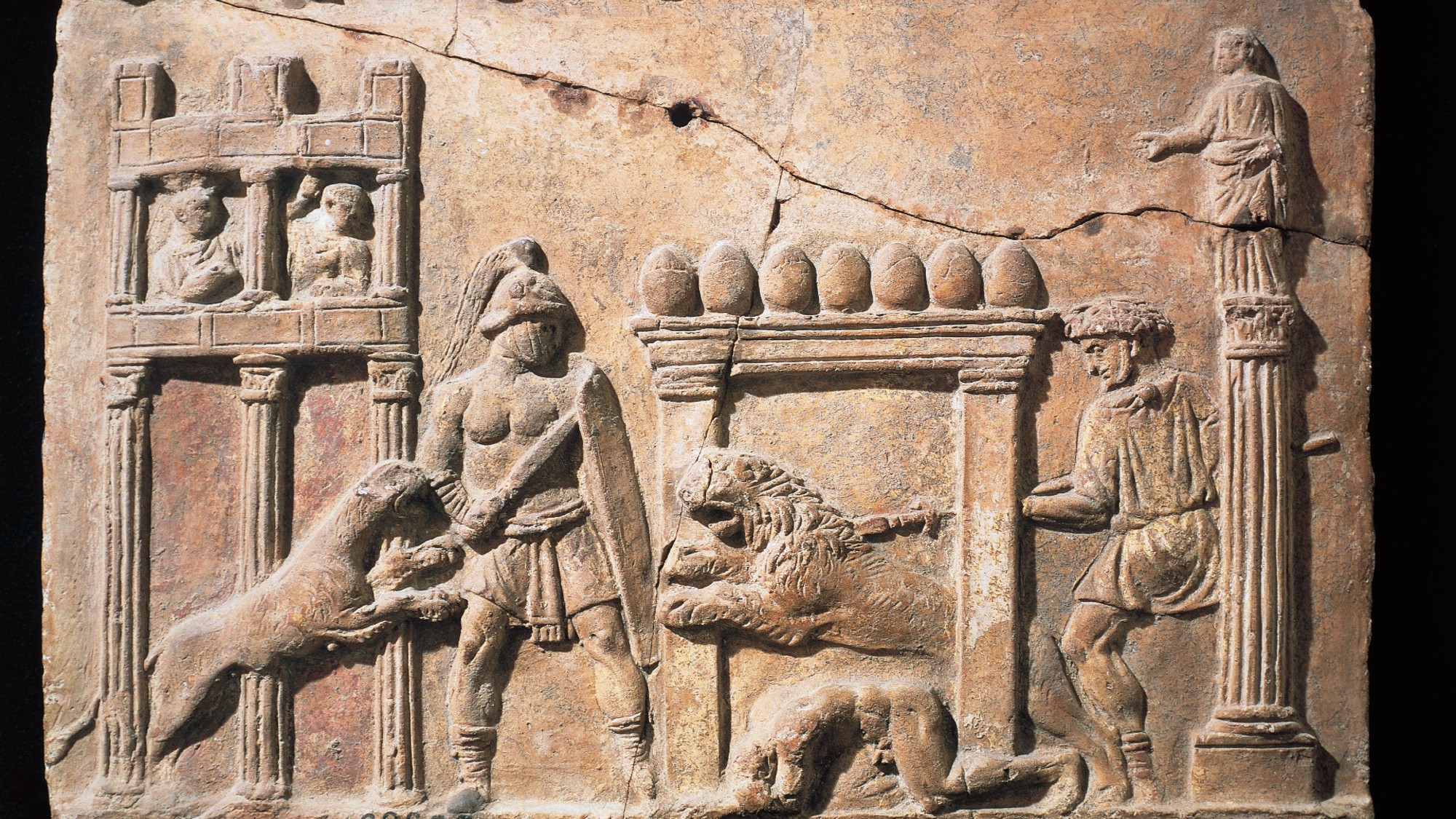 Scientists have found the first proof that ancient humans fought animals
Scientists have found the first proof that ancient humans fought animalsUnder the Radar A human skeleton definitively shows damage from a lion's bite
-
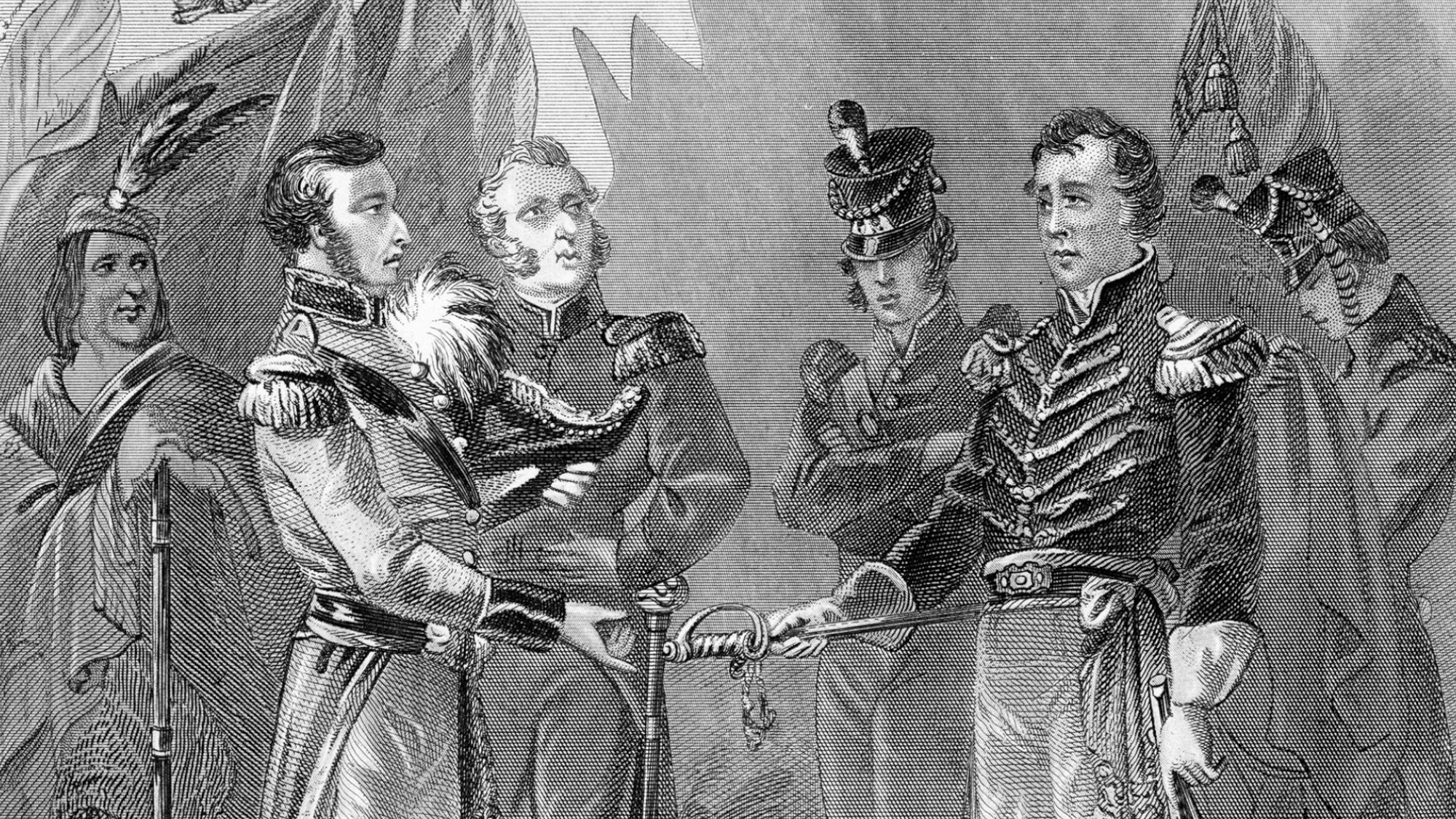 When the U.S. invaded Canada
When the U.S. invaded CanadaFeature President Trump has talked of annexing our northern neighbor. We tried to do just that in the War of 1812.
-
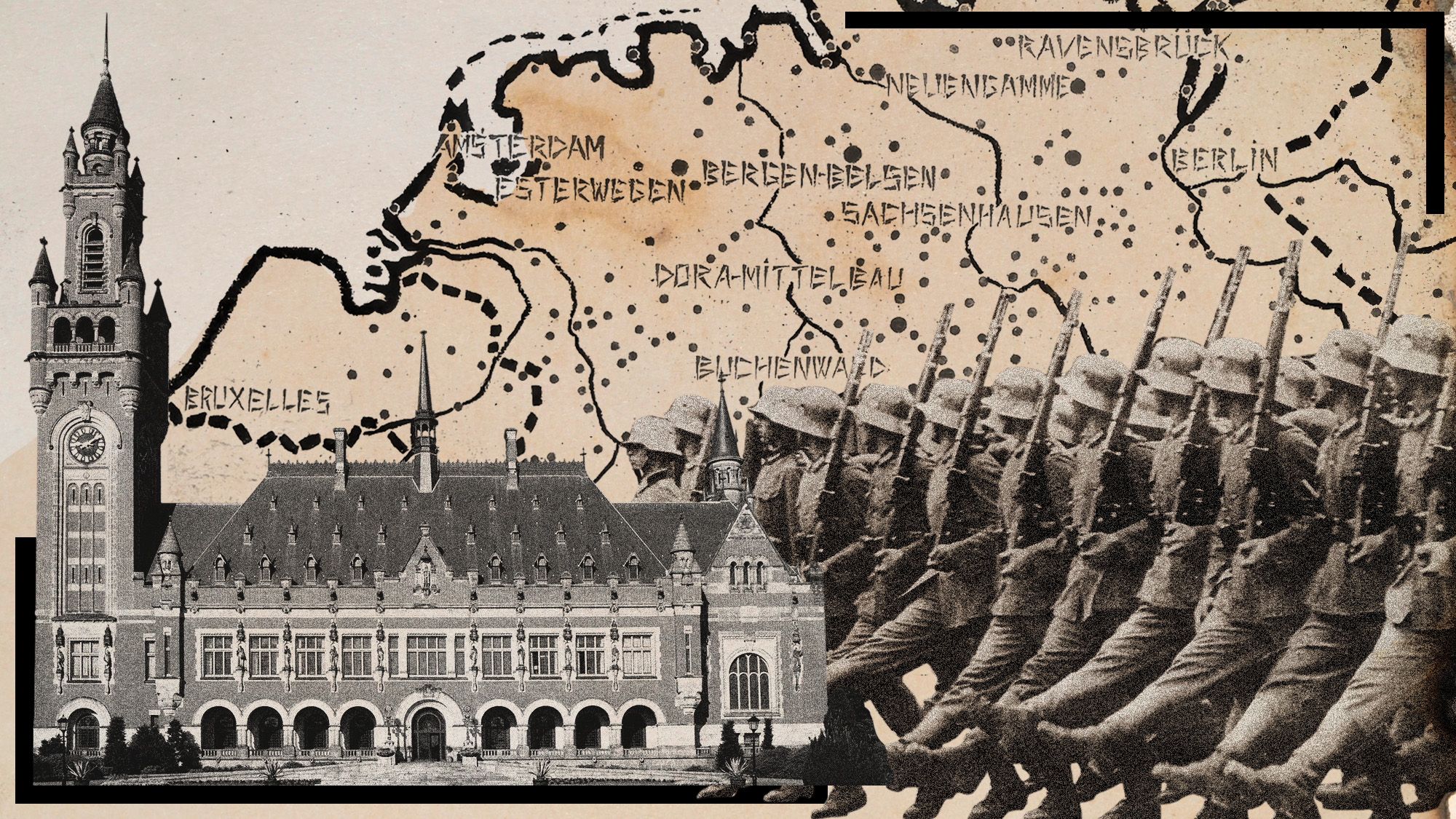 Newly publicized Dutch archives force families to confront accusations of Nazi collaboration
Newly publicized Dutch archives force families to confront accusations of Nazi collaborationUnder the Radar The archives were available to researchers but only recently became publicly accessible
-
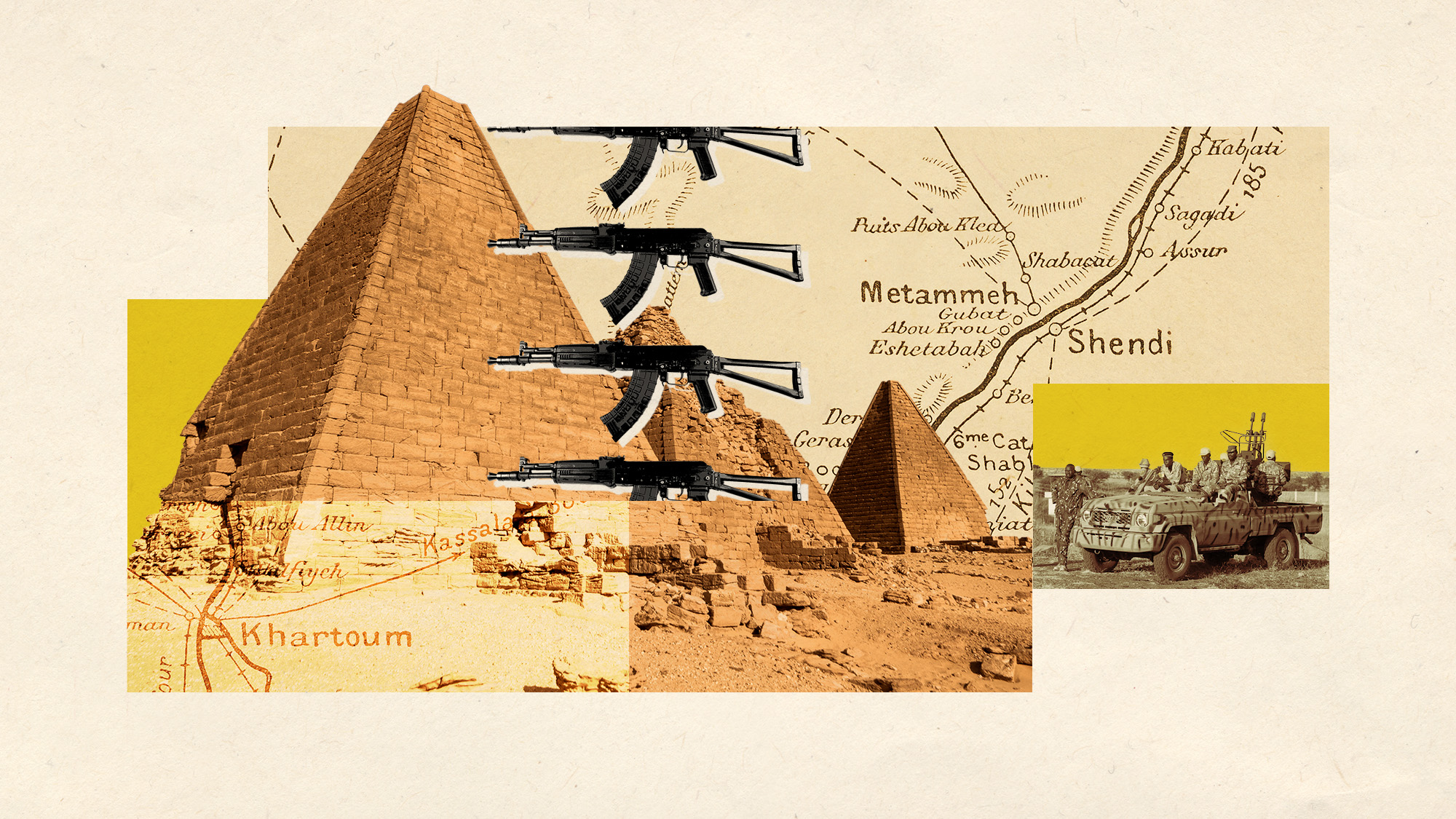 Sudan's forgotten pyramids
Sudan's forgotten pyramidsUnder the Radar Brutal civil war and widespread looting threatens African nation's ancient heritage
-
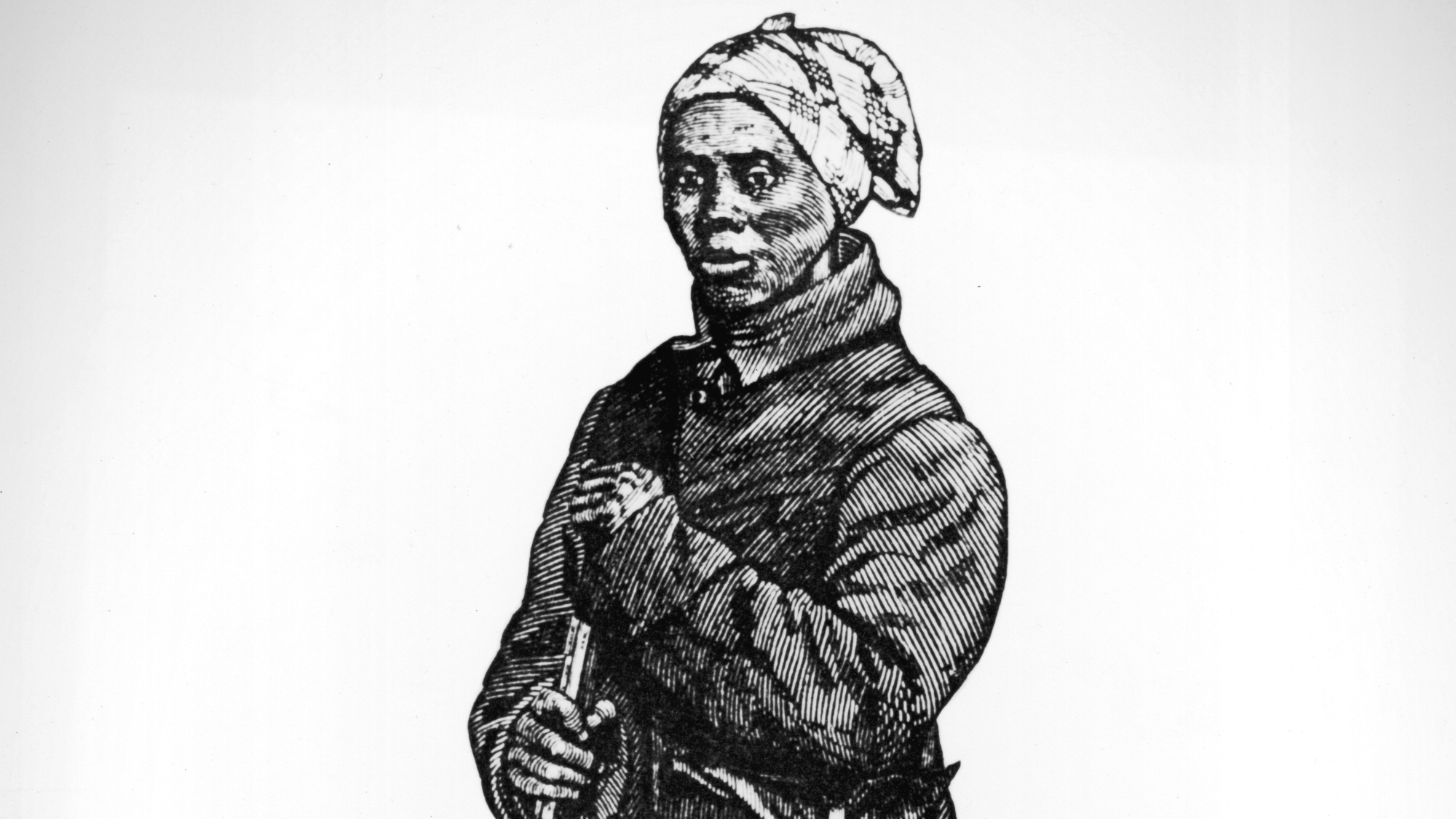 Harriet Tubman made a general 161 years after raid
Harriet Tubman made a general 161 years after raidSpeed Read She was the first woman to oversee an American military action during a time of war
-
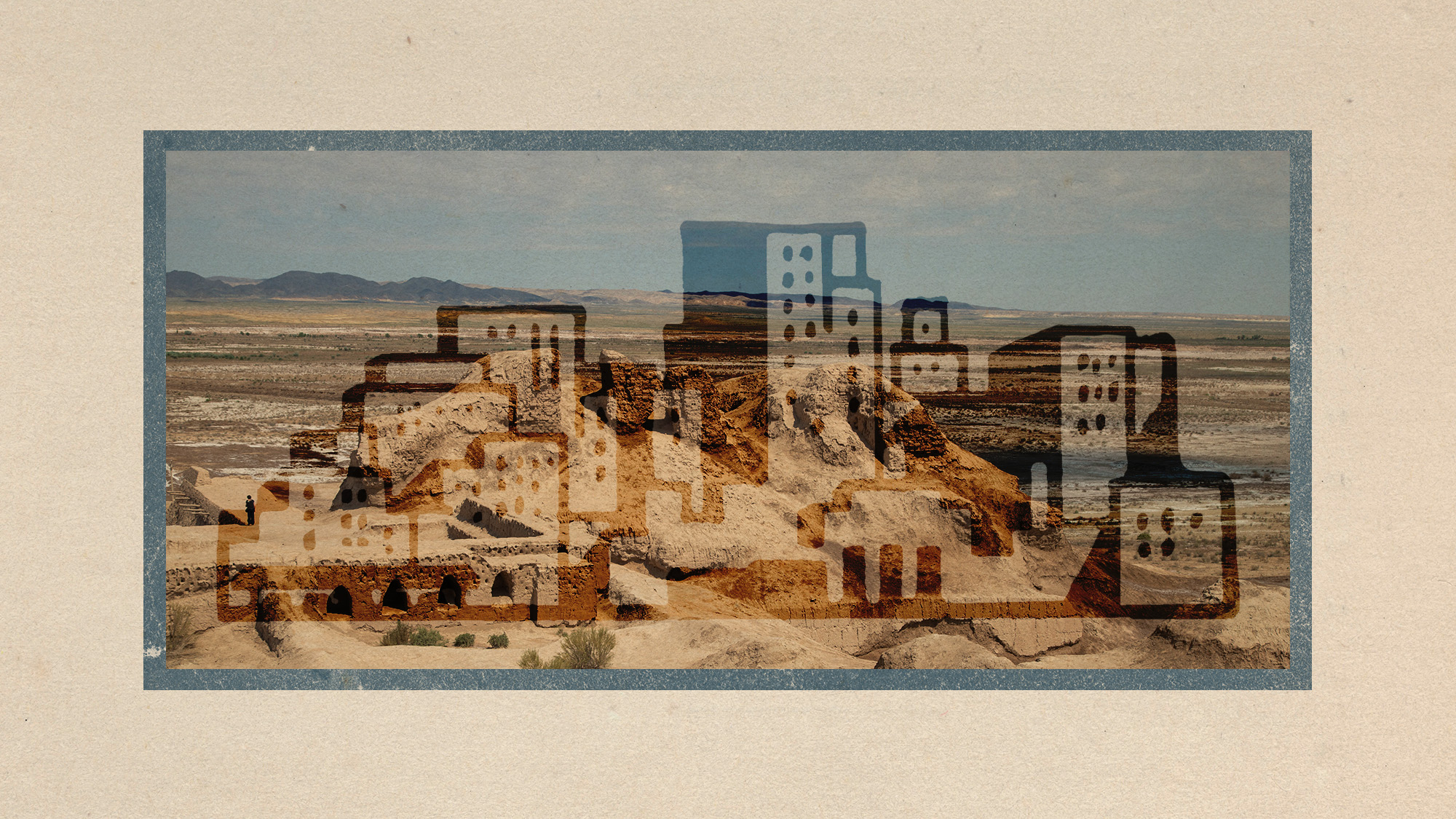 Two ancient cities have been discovered along the Silk Road
Two ancient cities have been discovered along the Silk RoadUnder the radar The discovery changed what was known about the old trade route
-
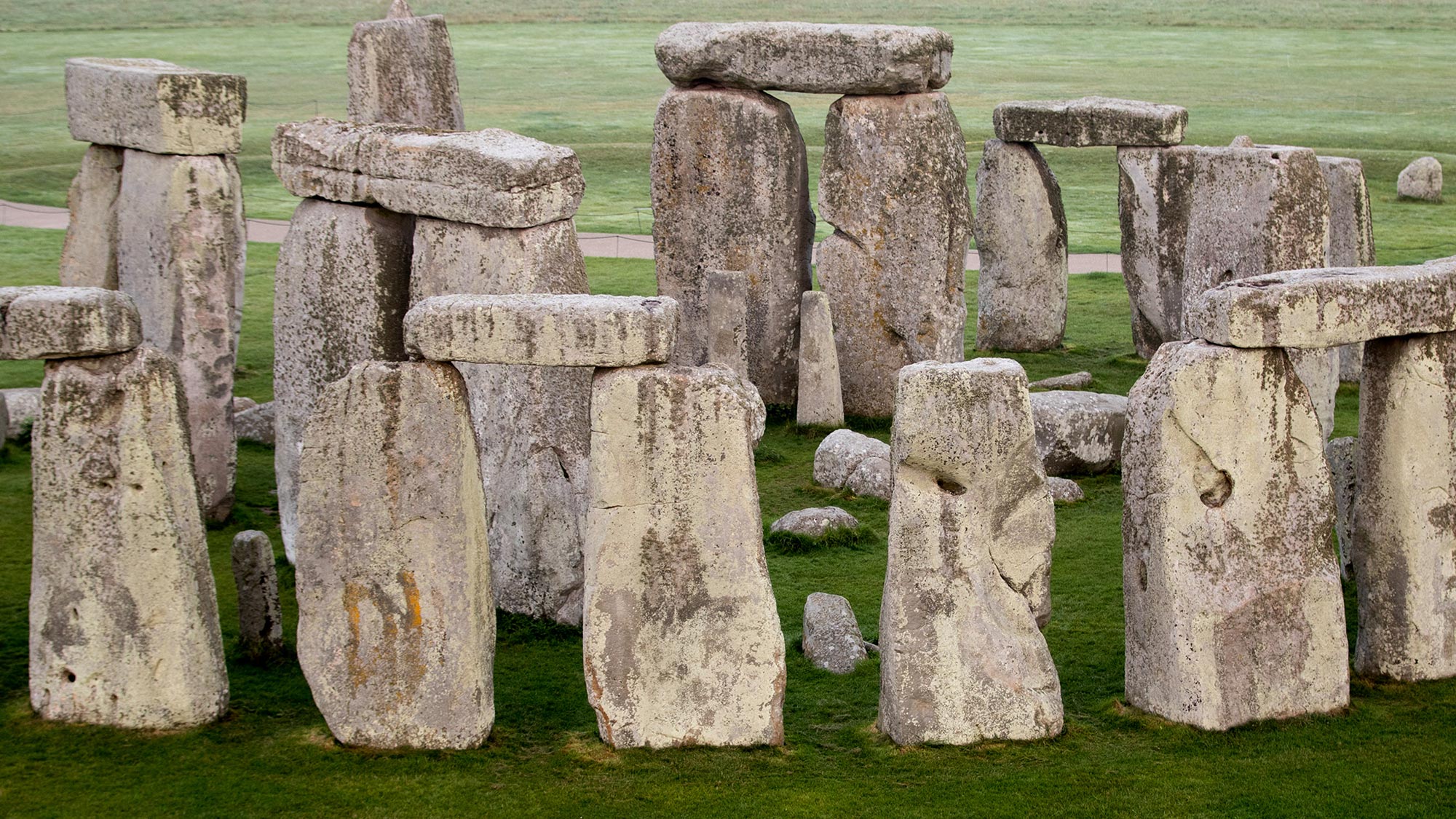 Stonehenge: a transformative discovery
Stonehenge: a transformative discoveryTalking Point Neolithic people travelled much further afield than previously thought to choose the famous landmark's central altar stone
-
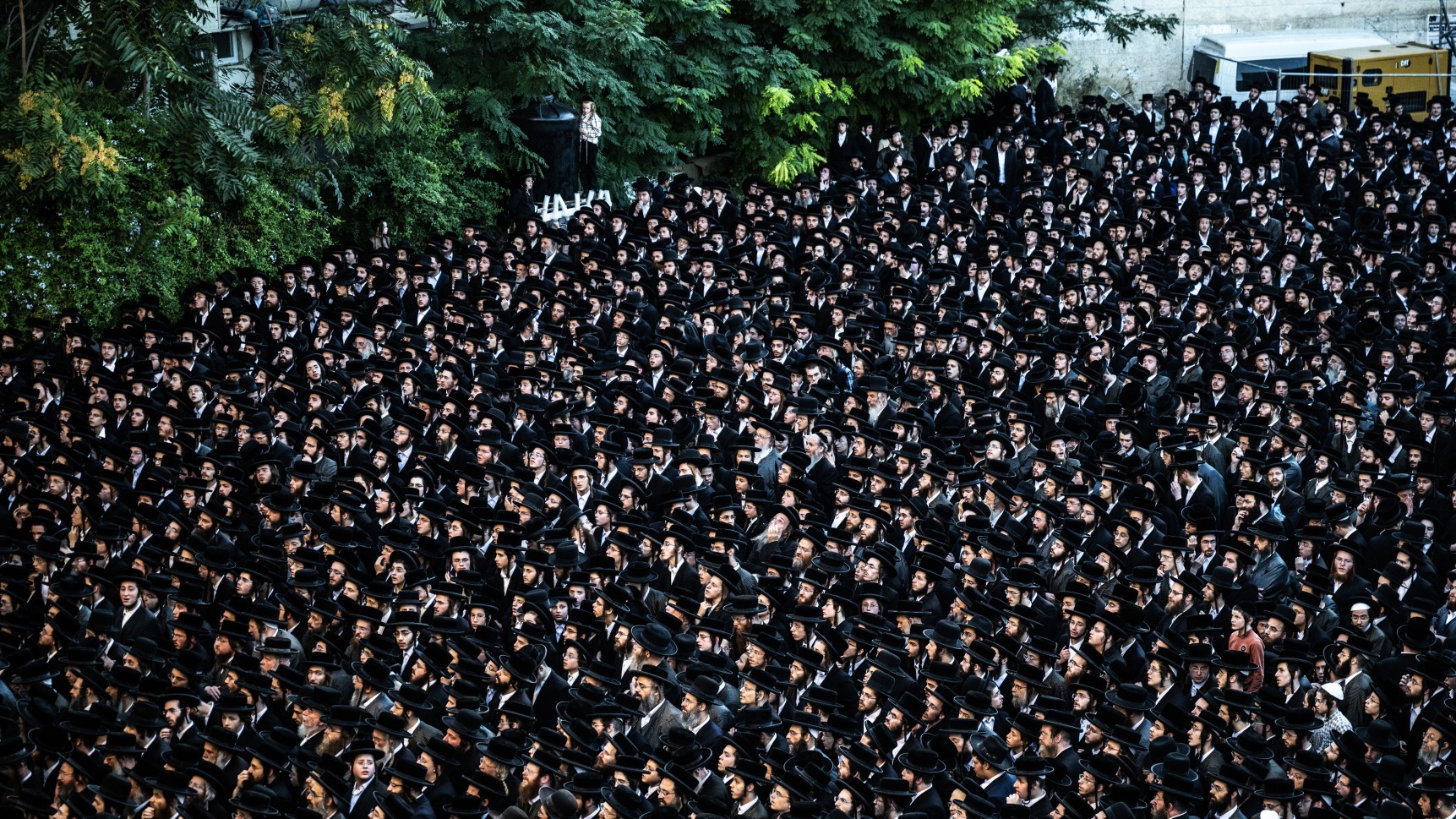 Haredim: Israel's ultra-Orthodox Jews now facing conscription
Haredim: Israel's ultra-Orthodox Jews now facing conscriptionThe Explainer Religious community pays few taxes, receives vast subsidies and has avoided military service, provoking ire of wider society